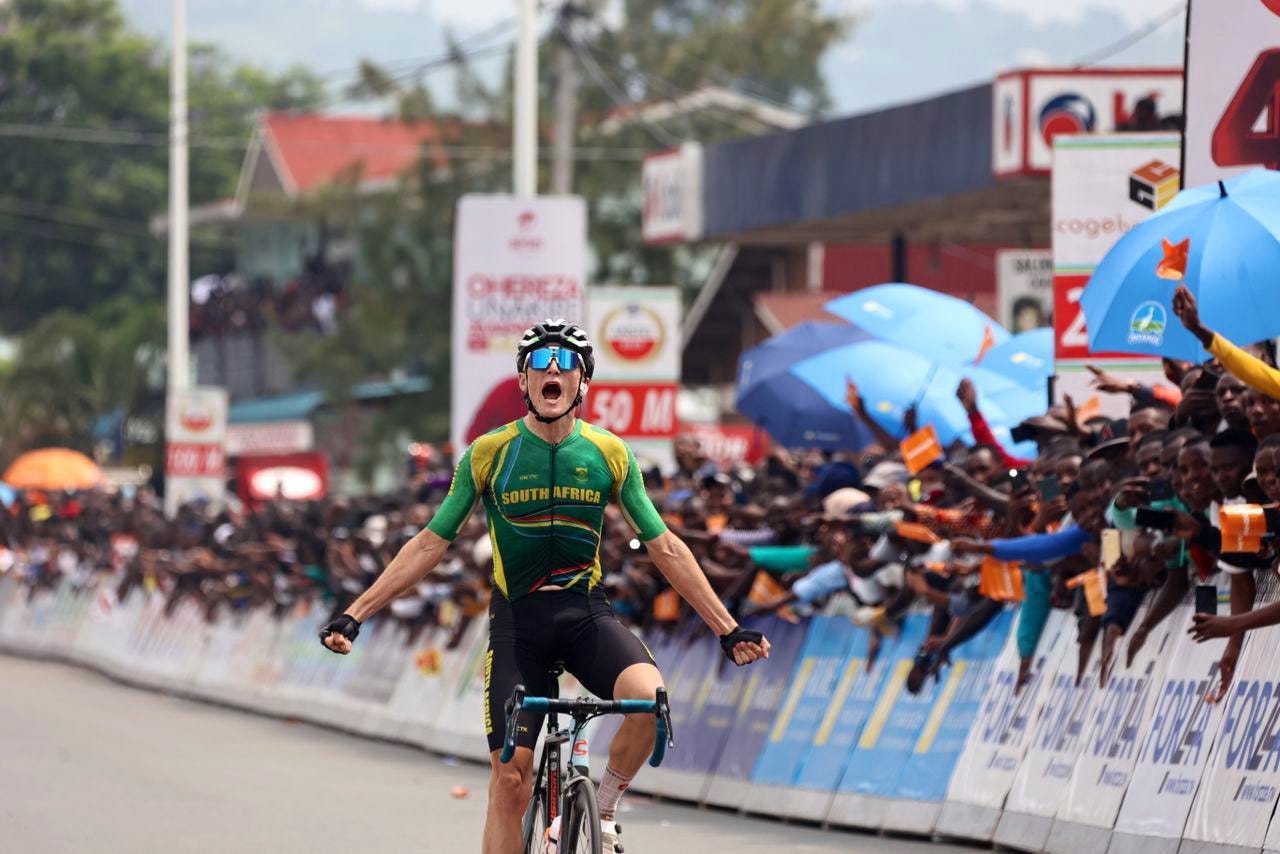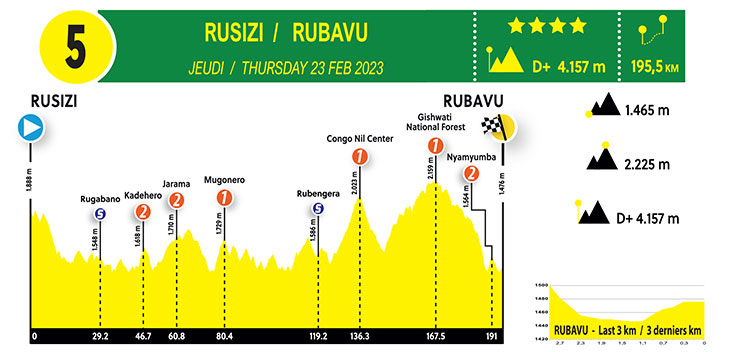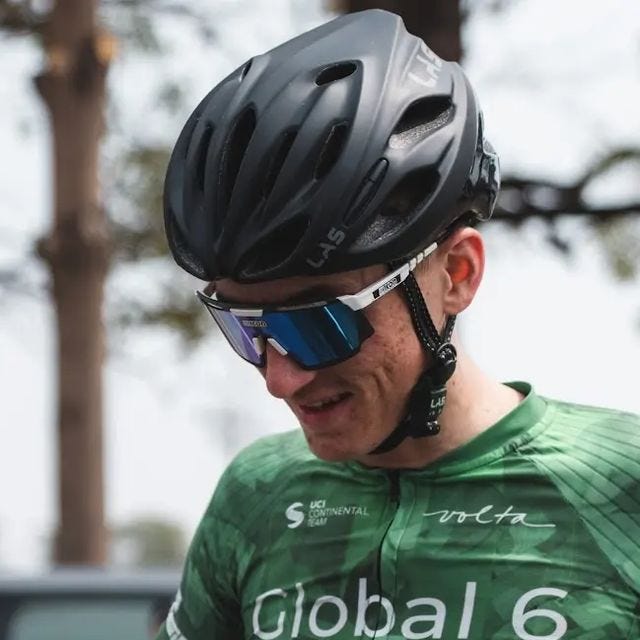From No Contract to Racing the Worlds - Interview with Callum Ormiston
Global 6 Cycling's Tour du Rwanda stage winner talks beating Chris Froome, overcoming illness and a sort of home World Championships.
It's early November 2022, Callum Ormiston is encouraged after a solid year of racing where he's secured some of his best ever results. Then he hears the news that no cyclist wants to hear. His team, Protouch, is folding.
Fast forward eight months, Ormiston has a contract with Global 6 Cycling and has spent 2023 travelling all round the world racing a top calendar and is now preparing to compete in his first UCI Elite World Championships road race.
“I'm pretty excited, I must say. I don't know what to expect,” Ormiston tells Global Peloton a few days before travelling to Scotland. “I'm telling myself it's going to be one of the hardest days probably I've ever had on a bike. So I’m preparing myself like that. I'm really excited to see how things go. And to be selected with guys like Ryan Gibbons, Impey and Morné [van Niekerk]. Yeah, I'm just really excited and honoured to be to be chosen to represent the country with them.”
Standing on the start-line of the World Championships is a far cry from what might have been expected of the 22-year-old when we was left searching for a contract in November and December of last year.
Ormiston had secured some strong results in Turkey throughout 2022, including a fifth place at the 1.2 GP Kapuzbasi and twelfth overall, the mountain’s jersey and sixth on stage two of the Tour of Sakarya.
It was enough to convince the New Zealand registered Global 6 Cycling team to rescue the South African in the first week of December after Rebecca Eliot, team principal at Protouch, put him in touch with the owner of Global 6, James Mitri.
Beating Chris Froome in Rwanda
This year started in sensational fashion for Ormiston.
In February, he competed in his first big race of the season at the Tour du Rwanda with the South African national team. He won the brutal queen stage on day five of the race. Unfortunately for Ormiston, that day that has become more famous because of Chris Froome’s long solo attack and subsequent mechanicals, than it has for the excellent performance that won the day.
“The day was really tough from the start,” Ormiston recalls while giving a run-down of the stage. “There was no control at all. It was the longest stage [of the race] and 4500 metres of climbing. From the start, it was full gas. It took a long time to settle down because none of the teams wanted to control the race.”
“I still remember Froome going, I think when we saw him go up the road things settled. We were all just relieved to get a bit of a break. I think everyone was feeling it at the time. I guess it did get talked a lot about with Froome’s long range attack. I grew up or looking up to Froome a lot. So it was pretty cool to beat him. When he went away, I thought maybe he might go all the way but it wasn't to be.”
“I went on the on the final climb. It wasn't the steepest climb, the penultimate climb was the toughest on the day. And it was quite a small group that went over, I think maybe there was only like 12 of us left. Then a few guys came back on the descent and then you're on that final climb. I think it was like 20 kilometres long, but not very steep.”
“My teammate Kent Main, he just came to me and he's like ‘shall we start attacking?’ At first I was like, ‘I'm not sure. Should we?’ And then he was like, ‘yeah, let just do it’. And I was like, ‘Okay, sounds good’.”
“I went first, and then they brought me back. Then he went, and I think we did like that four times. And then I think he got away for maybe two kilometres with three others, and I thought that was actually going all the way to the end. But they brought him back in the final kilometre [of the climb].”
“Then as we caught him, I just went straight away. I think everyone was on the limit. I just knew this is the time to do it. Even though it was very difficult, obviously, I just knew this would be the best time to go. I was looking at the descent as well and I back myself on the descent as well to go down there fairly fast because it was quite technical. And yeah, it worked!”
Ormiston eventually held off the chase by six seconds to win solo. It was his first win in a UCI race and he beat a four-time Tour de France winner and other top pros to do it. Surely that set him up for a stellar year.
A ‘tough time’
Unfortunately, cycling doesn’t always work like that. It’s up-and-down by nature and not usually in a straight line.
After Rwanda, Ormiston linked up with his Global 6 team-mates at the Tour of Taiwan. On returning, he was aware that something wasn’t quite right.
“I got a virus, I think in Taiwan, and I was struggling a lot in training. I just thought maybe it's a tough period of training and you just have to keep pushing and get through that, or maybe you just need to race. Then I went to Asturias with the team and I just wasn't right at all. After that I was supposed to go to Greece to do Tour of Hellas but I flew back because things weren't right.”
“I did some blood testing and it showed I had a virus. It wasn't in my system anymore so they couldn't tell me what the virus was. I guess that explained a lot of what I was feeling and why I was struggling so much.”
It was a setback, and a disappointing one after such a bright start to his season. Ormiston admitted it was a “tough time.” When he returned to the bike in the weeks following, it was only for an hour or two at a time with no intervals. Not perfect preparation for the Tour of Japan, his next race.
“I think my first effort was the first stage of Japan after like four weeks. So it was a bit of a shock to the system. But you don't get better training than racing, so I just tried to do the best I could really and then I was starting to feel better and better after that.”
It was another step in the right direction a week later at the Tour of Malopolska. He was feeling something like his normal self on the final stage before the mountain top finish, but a crash at the foot meant he was unable to compete.
An altitude block in Andorra followed to prepare for the Tour of Sibiu, but another crash on stage one in Romania added to this series of unfortunate events.
A Home Worlds of Sorts
After a few weeks off racing, Ormiston now feels back to his best and ready to take on his next sequence of races, which may include the Volta a Portugal and Tour of Britain.
Before all that is a trip to Scotland for Ormiston’s first Elite World Championships. He was a late replacement for EF’s Stefan de Bod who was called away to race the Tour de Pologne. It’s even a home event for Ormiston, who spent the first six years of his life living in the UK and holds a British passport as well as his South African one.
Team tactics aren’t quite sorted out just yet, but Ormiston expects to be working to help Daryl Impey in his final Worlds before retirement and Ryan Gibbons who, Ormiston says, is “going pretty well.” It’s a course that suits them both, too tough for the pure sprinters, ripe for aggressive racing.
As far as personal goals go, Ormiston is keeping realistic.
“I’d just like to finish the race. I don't want to really have a DNF behind my name for that race…whatever else is a bonus.”
Thanks for reading Global Peloton!
If you enjoyed this post, please consider subscribing and sharing.
Everything is free for now, you can add a paid subscription if you want to support Global Peloton.






